Would you like to put your political knowledge to the test with some fun puzzles? If history, politics or solving riddles is your thing, this group of more than 125 political riddles will keep you both engaged and informed. Questions about political leaders, decisions and world events encompass a broad range of these riddles. Now, take your pen and invite your friends to help us discover political wit and wisdom!
Presidential Puzzlers
Presidents are often interesting riddle subjects because they represent a nation. We’re going to examine America’s presidents by using fun facts and test your brain teaser skills.
Famous Presidents
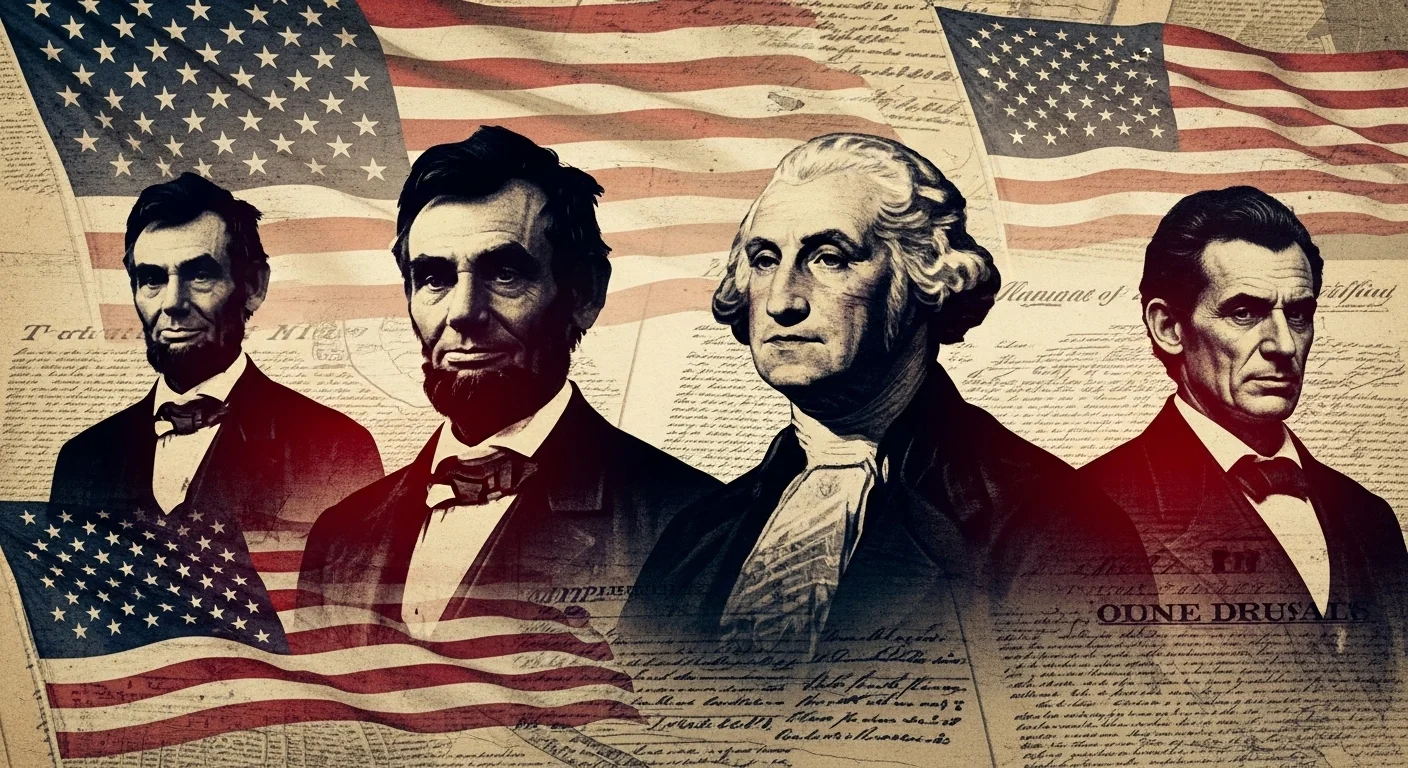
- Riddle: Which president had a middle name that was just a letter?
Hint: His middle initial was S, but it didn’t stand for anything.
Answer: Harry S. Truman
- Riddle: Which president was the first to be born in a hospital?
Hint: He was also a peanut farmer from Georgia.
Answer: Jimmy Carter
- Riddle: Which president served as both president and Supreme Court justice?
Hint: He was the 27th president and later became Chief Justice.
Answer: William Howard Taft
- Riddle: Which president was known for his “fireside chats”?
Hint: He communicated with the public during the Great Depression.
Answer: Franklin D. Roosevelt
- Riddle: Which president was the first to have a telephone in the White House?
Hint: It was installed in 1877.
Answer: Rutherford B. Hayes
- Riddle: Which president signed the Civil Rights Act of 1964?
Hint: It was a landmark law for equality.
Answer: Lyndon B. Johnson
- Riddle: Which president was a general in World War II?
Hint: He warned about the military-industrial complex.
Answer: Dwight D. Eisenhower
- Riddle: Which president had a pet alligator in the White House?
Hint: It was a gift from the Marquis de Lafayette.
Answer: John Quincy Adams
- Riddle: Which president was impeached but not removed from office?
Hint: It happened in the 1990s.
Answer: Bill Clinton
- Riddle: Which president led during the Spanish-American War?
Hint: It was fought in 1898.
Answer: William McKinley
- Riddle: Which president was known as “The Great Communicator”?
Hint: He was an actor before entering politics.
Answer: Ronald Reagan
- Riddle: Which president served during the Apollo moon landings?
Hint: The first moon landing was in 1969.
Answer: Richard Nixon
Presidential Facts
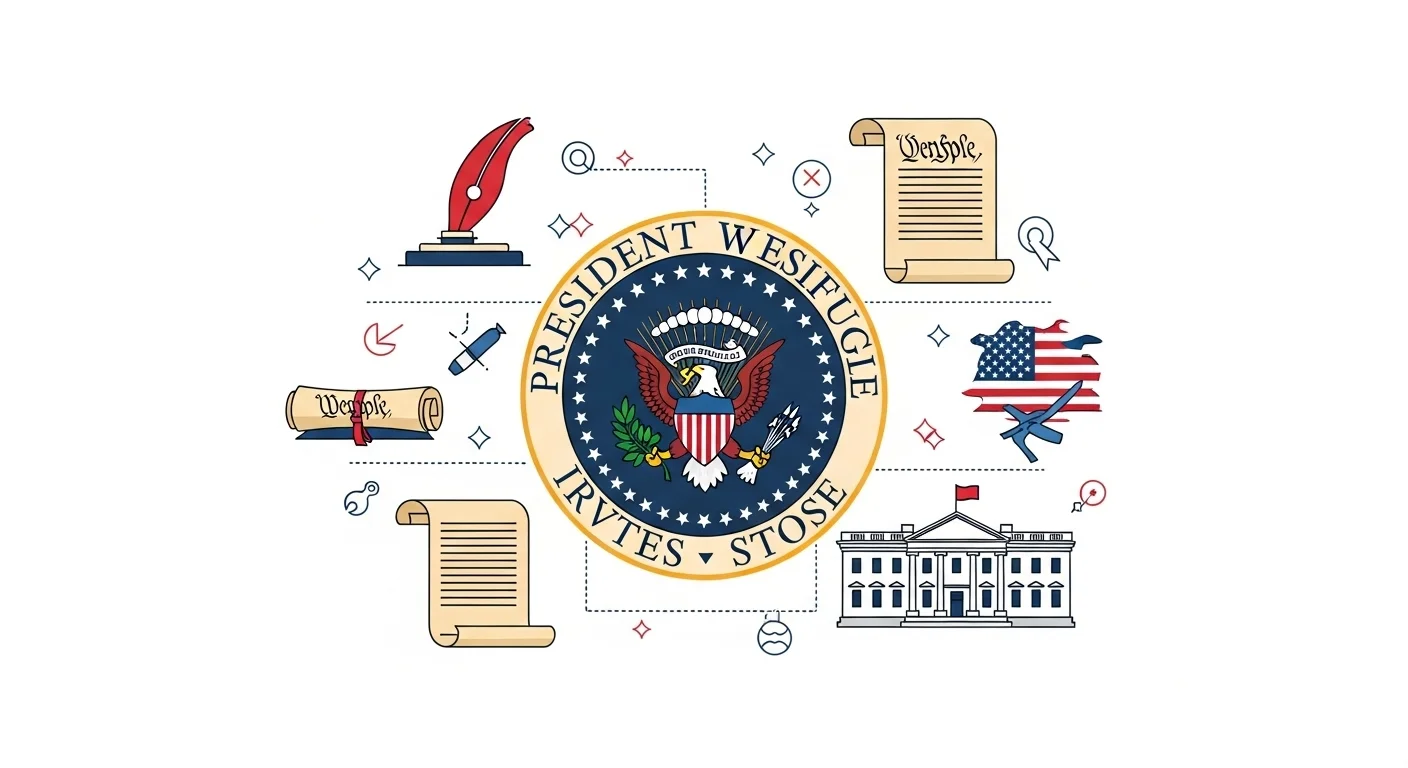
- Riddle: I am a speech given by the president to Congress each year. What am I?
Hint: It outlines the administration’s agenda.
Answer: State of the Union address
- Riddle: I am a limit set by the Constitution on how long a president can serve. What am I?
Hint: It was established after FDR’s four terms.
Answer: Two-term limit
- Riddle: I am the official residence of the U.S. president. What am I?
Hint: It’s a white building in Washington, D.C.
Answer: The White House
- Riddle: What is the minimum age to become president?
Hint: It’s set by the Constitution.
Answer: 35
- Riddle: I am the oath taken by the president on Inauguration Day. What am I?
Hint: It’s a promise to uphold the Constitution.
Answer: Oath of office
Politician Puns and Jokes
Politicians, with their unique habits and what they do in public, make good subjects for funny riddles. They take a look at the traits and habits of their actors with just a hint of mockery.
Characteristics of Politicians
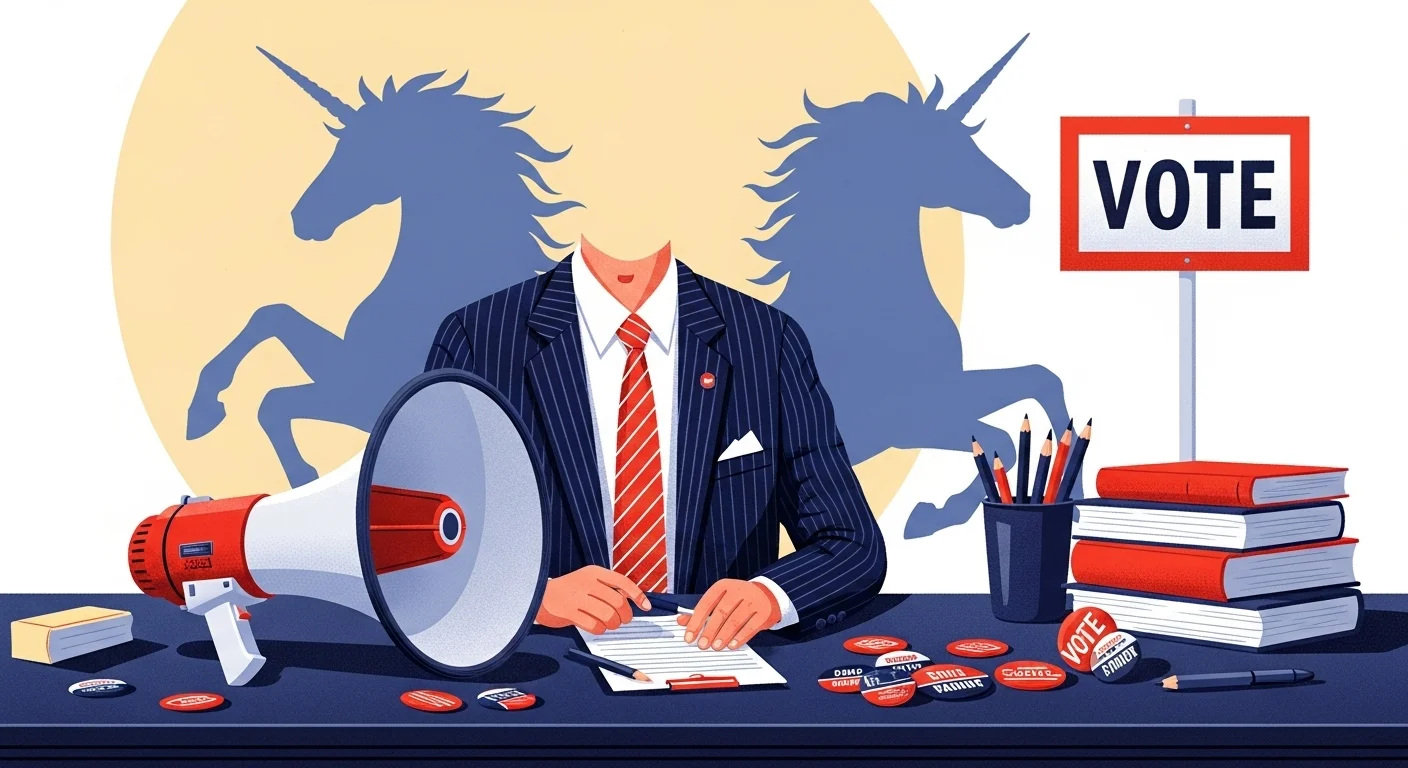
- Riddle: Why was the politician always calm?
Hint: They had a lot of experience with stress.
Answer: Because they had thick skin
- Riddle: What do you call a politician who’s always on the fence?
Hint: They can’t make up their mind.
Answer: A waffler
- Riddle: What do you call a politician who tells the truth?
Hint: They’re rare in politics.
Answer: A unicorn
- Riddle: What do politicians and babies have in common?
Hint: They both make a lot of noise but deliver little.
Answer: They coo and blow bubbles, but politicians’ bubbles burst faster
- Riddle: Why don’t politicians play chess?
Hint: They prefer games where they can bend the rules.
Answer: Because they can’t stand losing, and chess has clear winners
Politician Behaviors
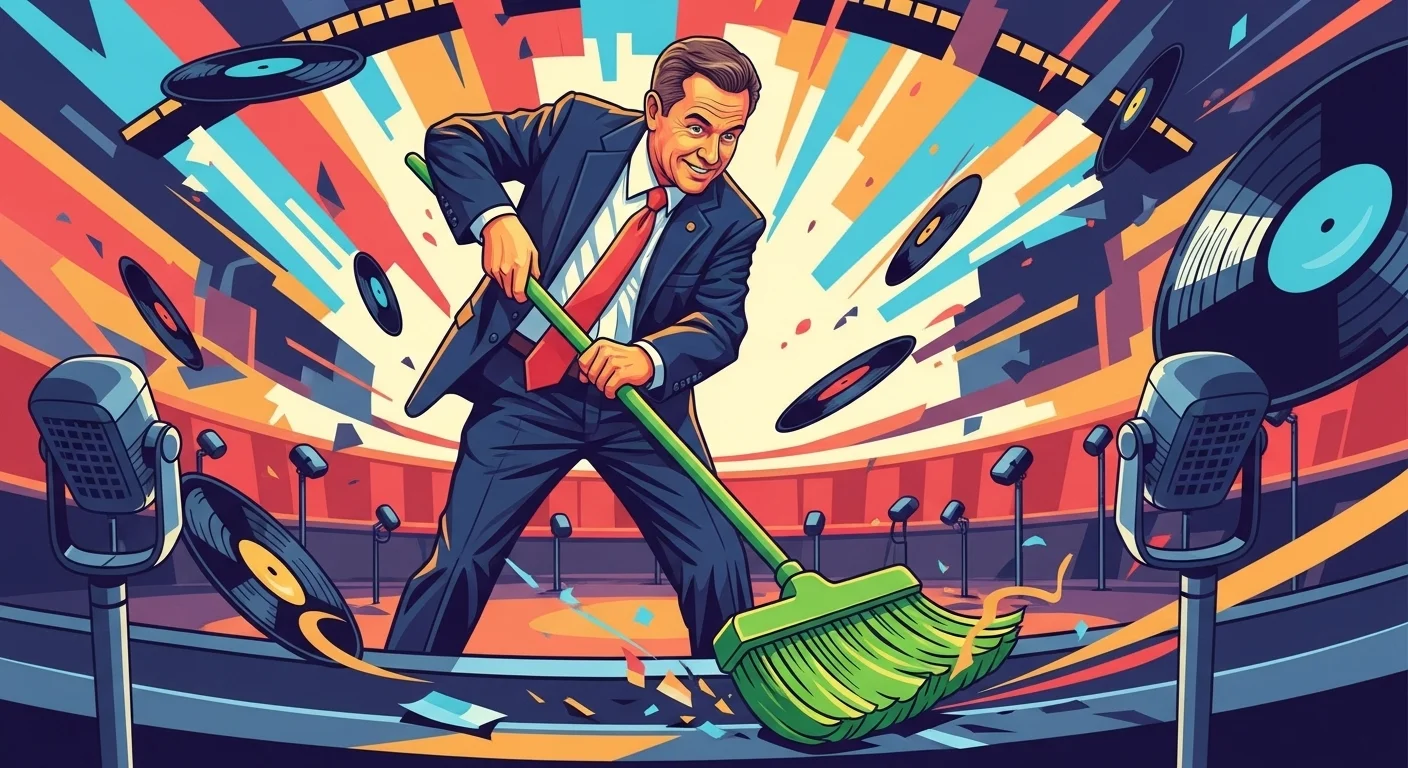
- Riddle: What do you call a politician who’s always late?
Hint: It’s a play on a famous scandal.
Answer: A delay-gate
- Riddle: Why did the politician bring a broom to the debate?
Hint: They wanted to sweep away the opposition.
Answer: To sweep the competition
- Riddle: What’s a politician’s favorite type of music?
Hint: It’s named after a band that spins stories.
Answer: Spin doctors
- Riddle: Why did the politician go to school?
Hint: They needed to improve their public speaking.
Answer: To learn how to spin their words better
- Riddle: What do you get when you cross a politician with a joke?
Hint: It’s not very funny.
Answer: A punchline that never lands
Election Enigmas
At the center of democracy is election which always brings both tension and thoughtful strategy. These riddles make you feel what campaigns and voting are all about.
Voting and Campaigns
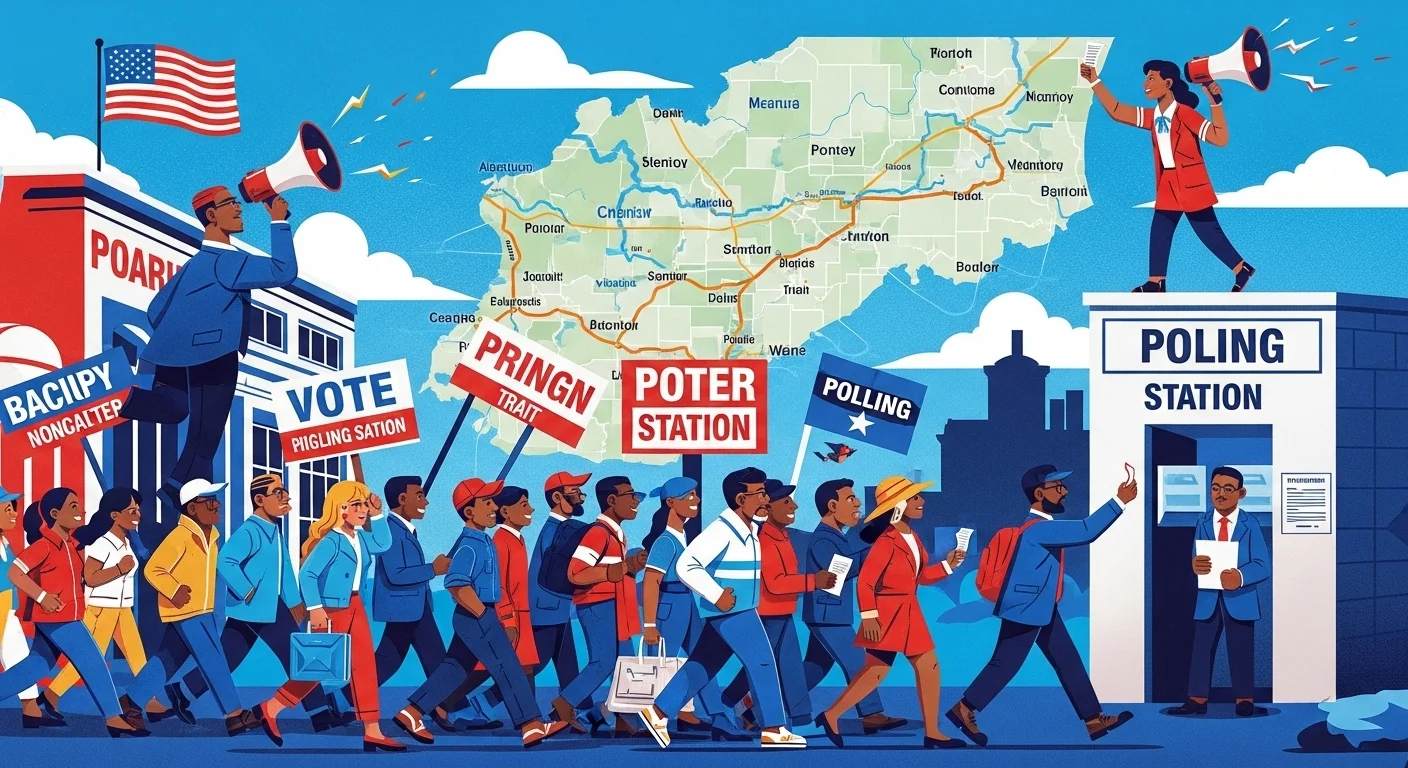
- Riddle: What do you call an election where no one wins?
Hint: It’s when the votes are tied.
Answer: A dead heat
- Riddle: Why did the candidate bring a map to the election?
Hint: They needed to find their way to victory.
Answer: To navigate the electoral map
- Riddle: What is the opposite of a landslide election?
Hint: It’s when the race is very close.
Answer: A nail-biter
- Riddle: What do you call a vote that’s cast from afar?
Hint: It’s common for overseas voters.
Answer: An absentee ballot
- Riddle: Why did the voter wear glasses to the polls?
Hint: They needed to read the fine print.
Answer: To see through the campaign promises
Election Day

- Riddle: What do you call an election with only one candidate?
Hint: It’s not much of a contest.
Answer: A coronation
- Riddle: I am the day when Americans go to the polls. What am I?
Hint: It’s typically in November.
Answer: Election Day
- Riddle: What is a swing state?
Hint: It can go either way in an election.
Answer: A state that could vote for either party
- Riddle: Why did the candidate hire a magician?
Hint: They needed some tricks to win votes.
Answer: To make their opponents disappear
- Riddle: What do you call a vote cast by a ghost?
Hint: It’s a playful take on voting irregularities.
Answer: A ballot from the great beyond
Party Time: Political Parties
The symbols and disputes of political parties affect the political culture, inspiring many smart riddles.
Democrats and Republicans
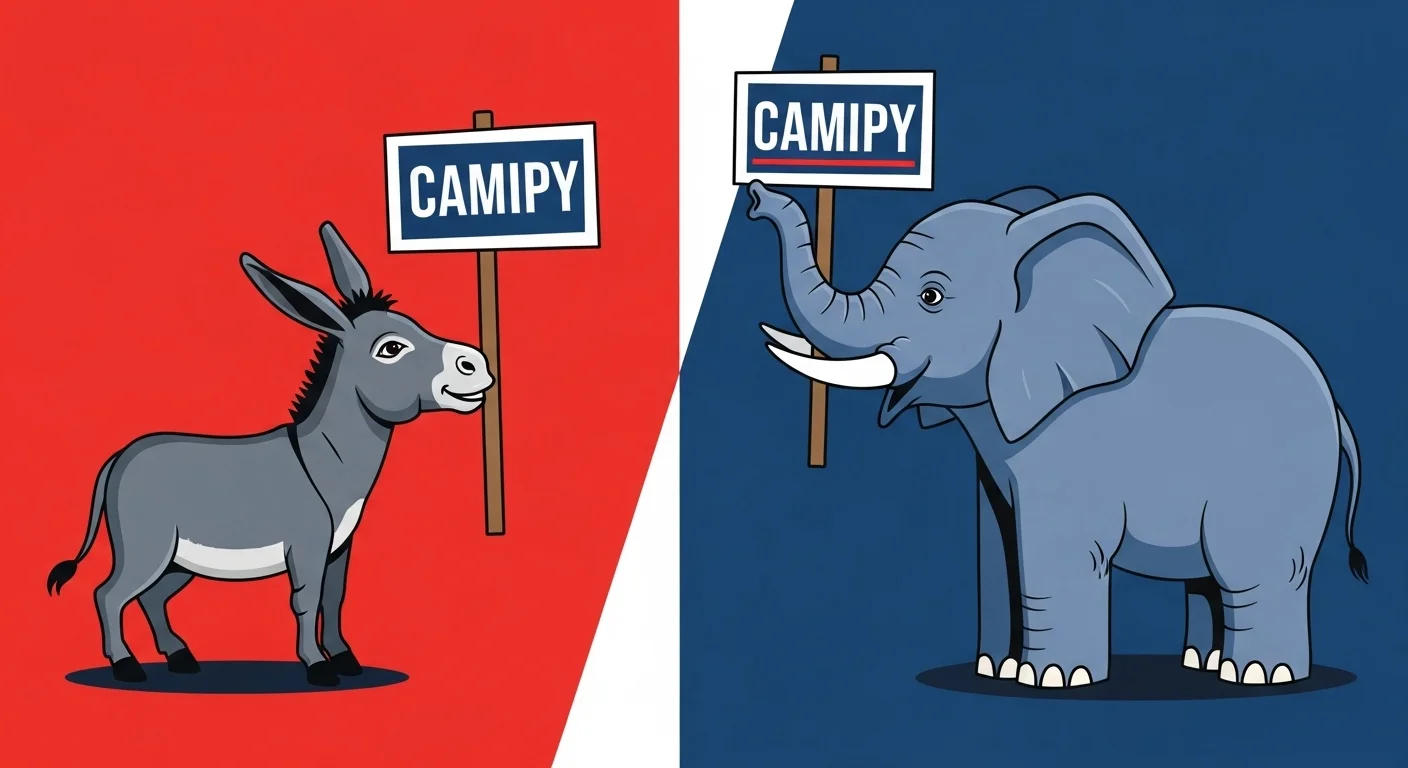
- Riddle: Which political party is associated with the color green in some countries?
Hint: They focus on environmental issues.
Answer: Green Party
- Riddle: In the U.S., which party is often associated with labor unions?
Hint: It’s traditionally the party of the working class.
Answer: Democratic Party
- Riddle: What do you call a party that loves long speeches?
Hint: It’s a tactic used in the Senate.
Answer: A filibuster fan club
- Riddle: Which party is symbolized by a rose in some countries?
Hint: It’s often associated with socialism.
Answer: Social Democratic Party
- Riddle: What do you get when you mix Democrats and Republicans?
Hint: It’s often a stalemate in Congress.
Answer: Gridlock
Other Parties
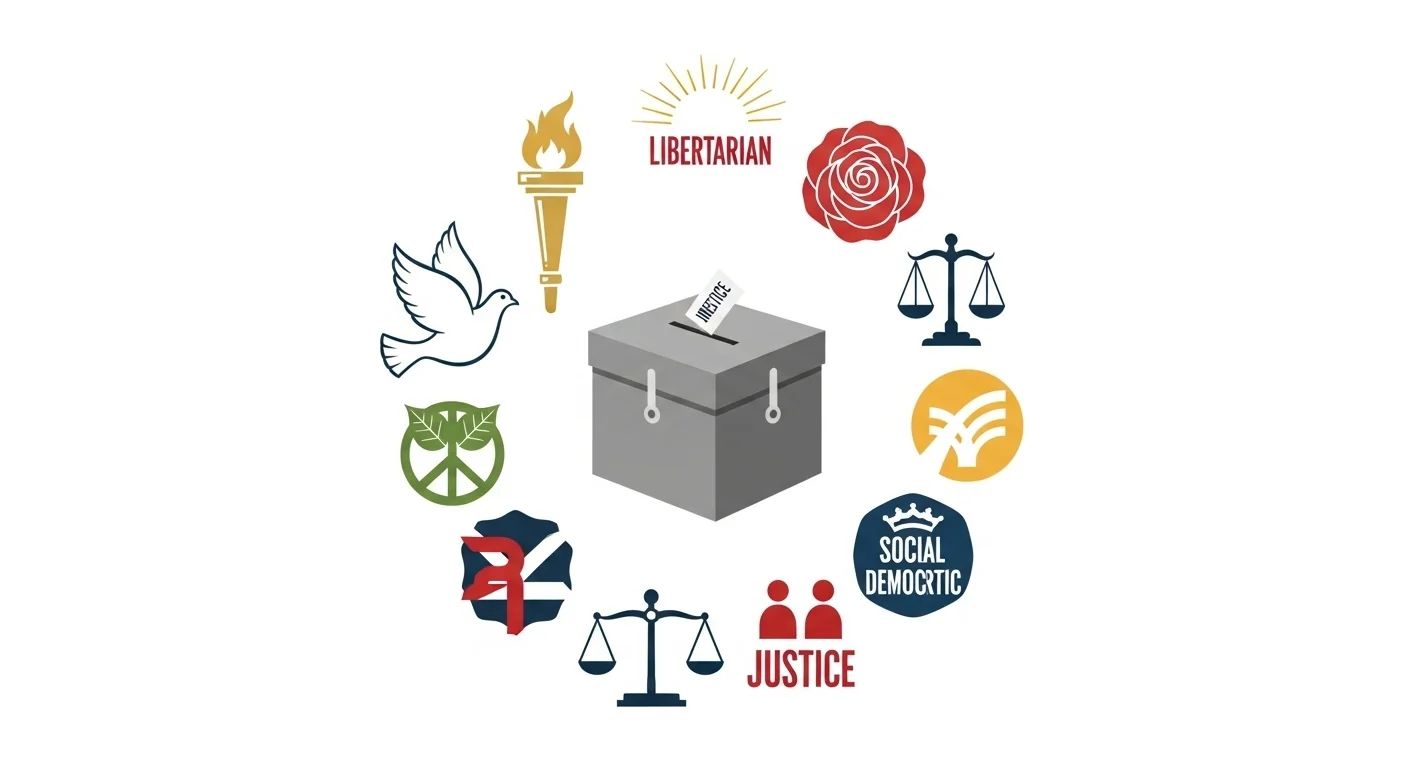
- Riddle: Which party was founded by Thomas Jefferson?
Hint: It’s an early American party.
Answer: Democratic-Republican Party
- Riddle: What do you call a party that’s all about liberty?
Hint: They want minimal government.
Answer: Libertarian Party
- Riddle: Why did the political party throw a big bash?
Hint: They wanted to celebrate a win.
Answer: To celebrate their election victory
- Riddle: What do you call a party that splits from the main one?
Hint: It’s a breakaway group.
Answer: A splinter party
- Riddle: Which party is known for its tea party movement?
Hint: It’s a conservative faction.
Answer: Republican Party
Policy and Issue Riddles
Policies play a big role in creating nations and these riddles discuss them in a creative and no-nonsense way.
Domestic Policies
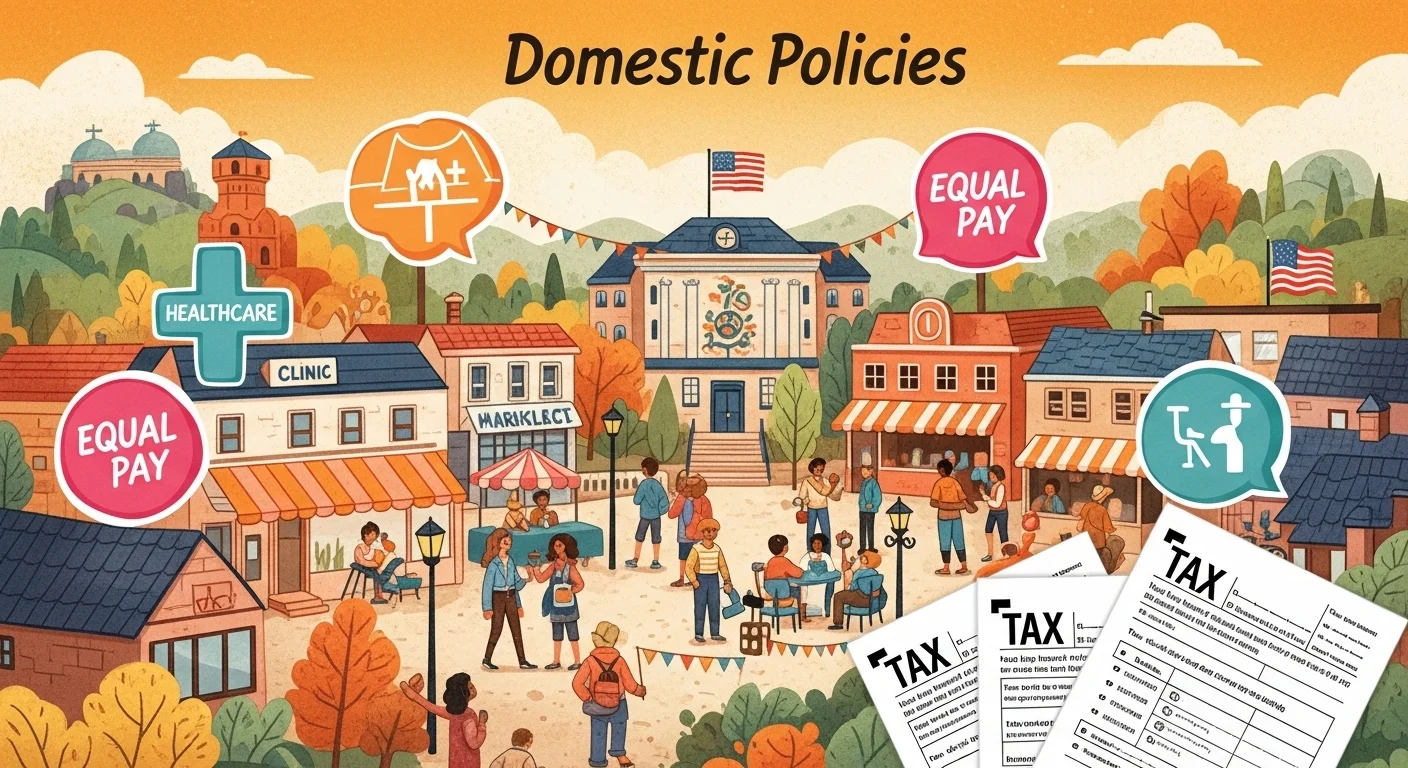
- Riddle: What policy aims to reduce income inequality by taxing higher incomes more?
Hint: It’s a type of taxation system.
Answer: Progressive taxation
- Riddle: Which act in the U.S. provides health insurance for people over 65?
Hint: It’s a federal program.
Answer: Medicare
- Riddle: Which policy banned discrimination based on race or color?
Hint: It was signed in 1964.
Answer: Civil Rights Act
- Riddle: What is pork-barrel spending?
Hint: It’s when politicians fund projects for their own districts.
Answer: Government spending for local projects to gain favor
- Riddle: What policy ensures equal pay for equal work?
Hint: It addresses gender wage gaps.
Answer: Equal Pay Act
Foreign Policies
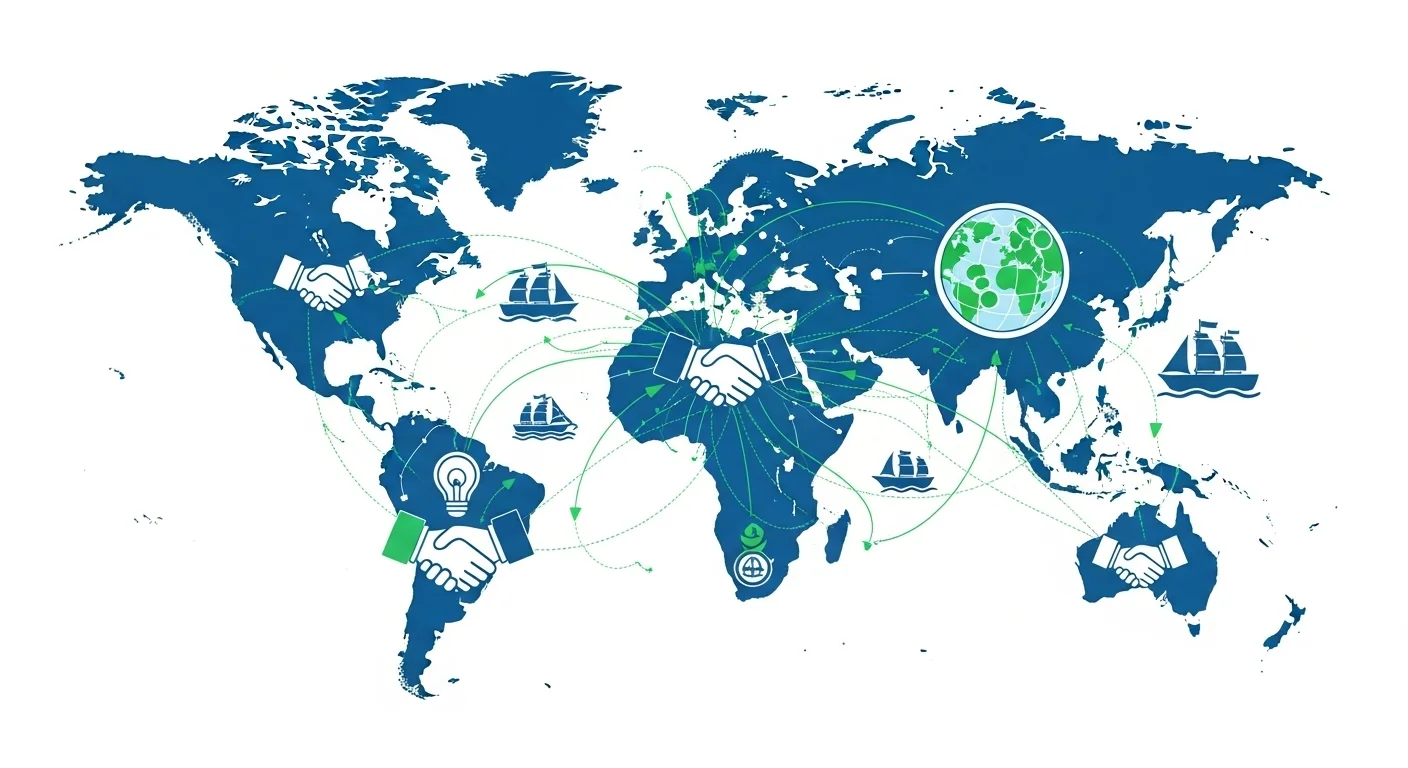
- Riddle: Which agreement created a free trade zone between the U.S., Canada, and Mexico?
Hint: It was originally NAFTA, now USMCA.
Answer: USMCA
- Riddle: What is the policy of non-involvement in foreign conflicts called?
Hint: It’s about staying out of other countries’ affairs.
Answer: Isolationism
- Riddle: Which international agreement aims to combat climate change?
Hint: Signed by many countries in 2015.
Answer: Paris Agreement
- Riddle: What policy allows countries to trade without tariffs?
Hint: It’s a key concept in global economics.
Answer: Free trade
- Riddle: What is diplomacy?
Hint: It’s how nations negotiate peacefully.
Answer: The art of conducting international relations
World Leaders and International Politics
You’ll see many politics riddles focus on famous leaders and global organizations.
Famous World Leaders
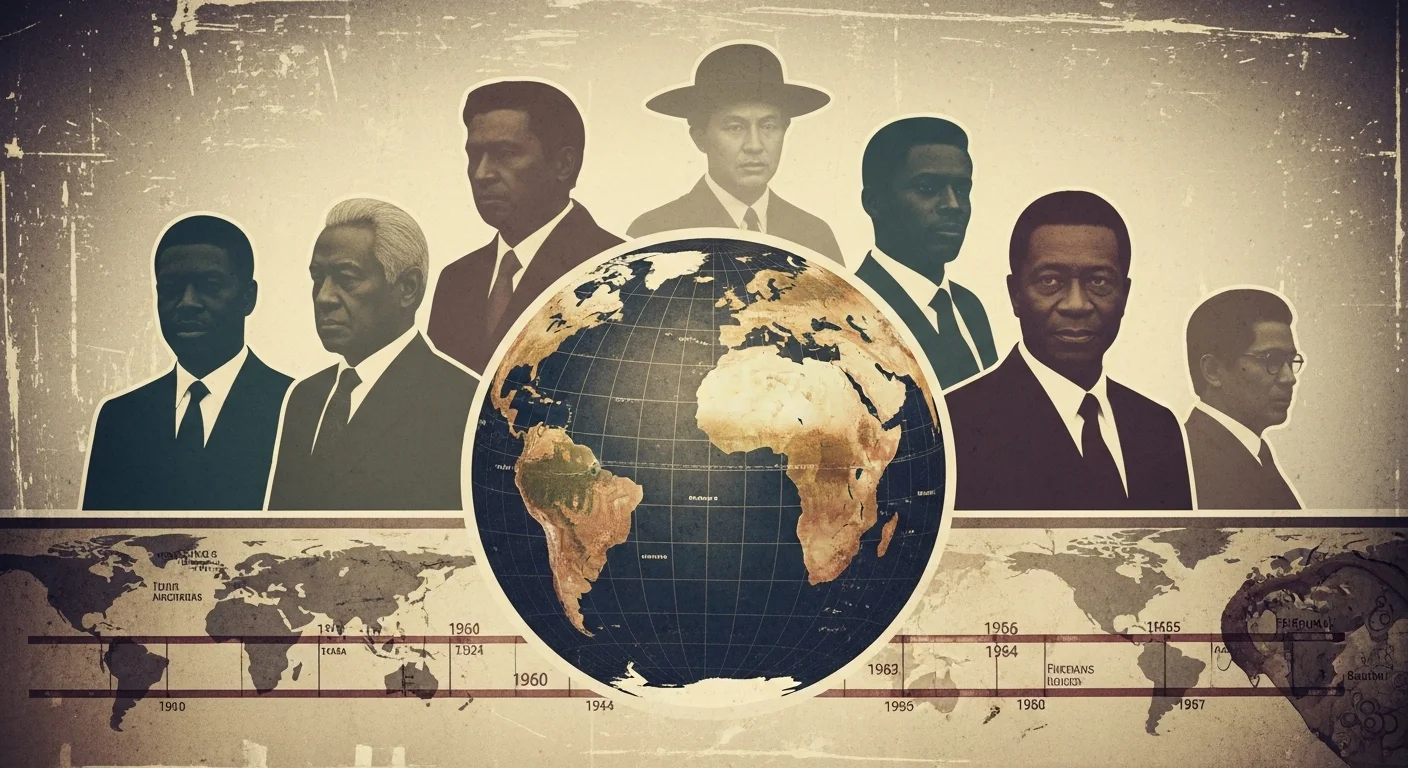
- Riddle: Who was the first female prime minister of India?
Hint: She was from the Nehru-Gandhi family.
Answer: Indira Gandhi
- Riddle: Which leader is known for his “Four Modernizations” in China?
Hint: He opened up China to the world economy.
Answer: Deng Xiaoping
- Riddle: Who led France during its Fifth Republic’s early years?
Hint: He’s a towering figure in French history.
Answer: Charles de Gaulle
- Riddle: Which leader unified Germany in 1990?
Hint: He was the German Chancellor.
Answer: Helmut Kohl
- Riddle: Who was the first female chancellor of Germany?
Hint: She served from 2005 to 2021.
Answer: Angela Merkel
Current World Leaders (General Terms)
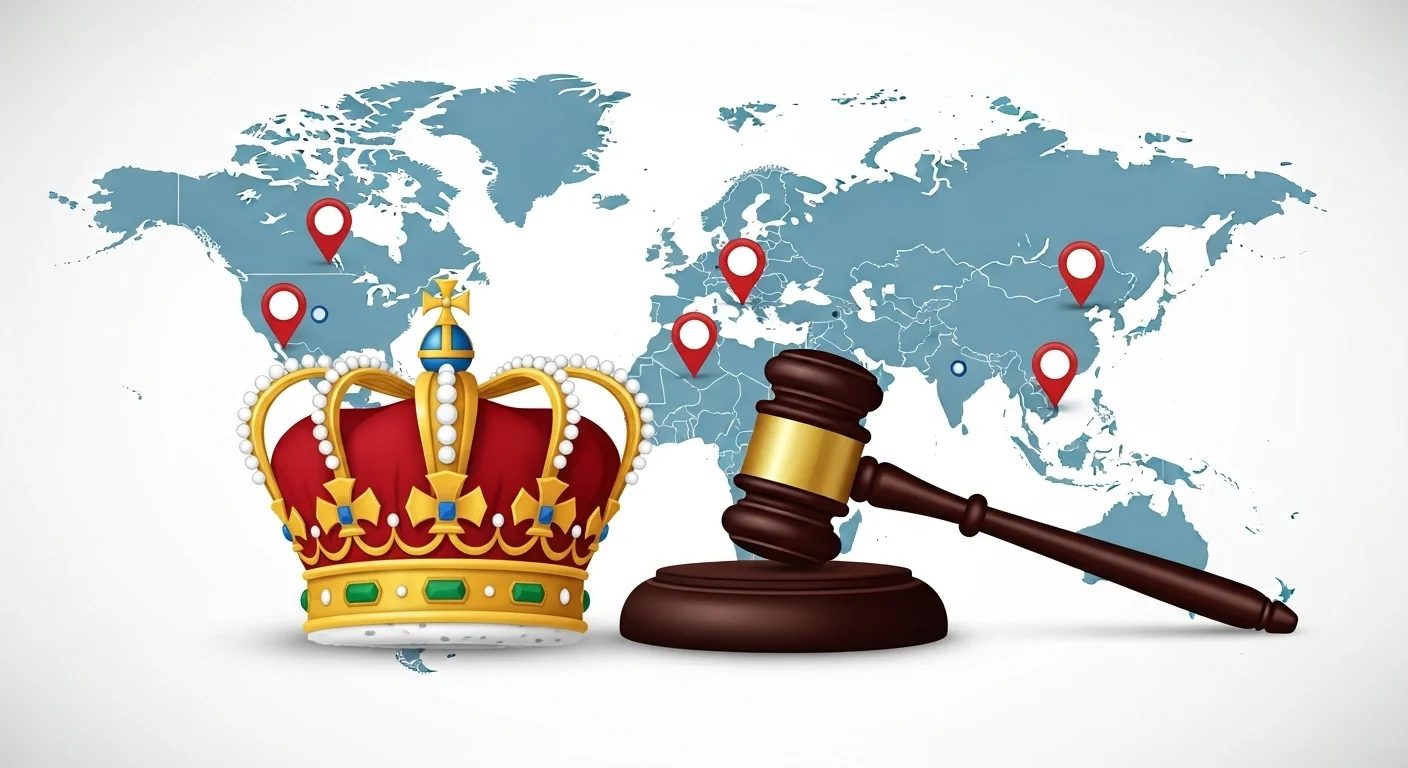
- Riddle: I am a country with a ceremonial emperor and a prime minister. What am I?
Hint: It’s an island nation in Asia.
Answer: Japan
- Riddle: Which leader is associated with the term “Iron Curtain”?
Hint: He spoke about it during the Cold War.
Answer: Winston Churchill
- Riddle: I am a country led by a president and a supreme leader. What am I?
Hint: It’s in the Middle East.
Answer: Iran
- Riddle: Who led the Soviet Union during World War II?
Hint: He was a key Allied leader.
Answer: Joseph Stalin
- Riddle: Which leader is known for the Cuban Revolution?
Hint: He led Cuba for decades.
Answer: Fidel Castro
Political Concepts and Terms
To understand politics, you must understand its main ideas. They measure your understanding of both government institutions and theories.
Government Structures
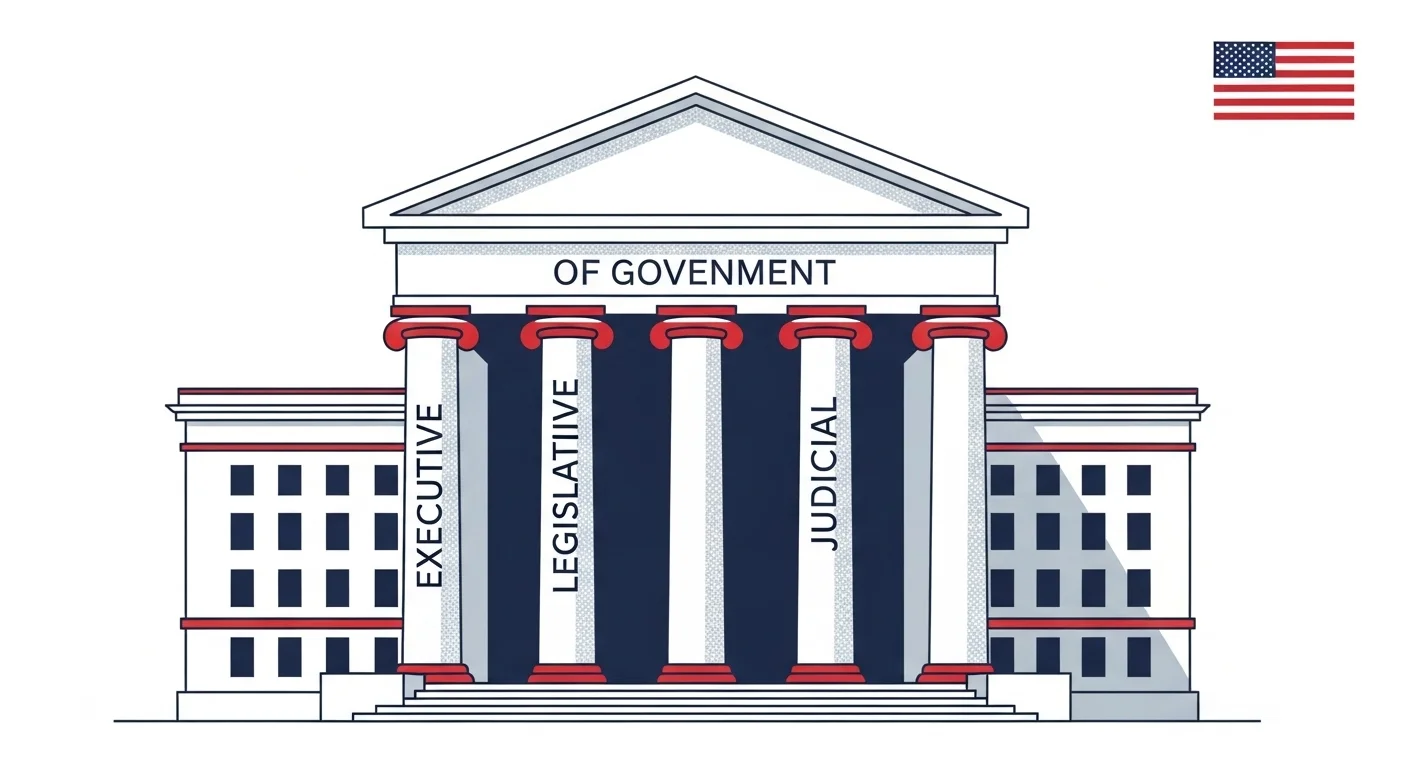
- Riddle: What is the term for dividing power among different branches of government?
Hint: It prevents any one branch from becoming too powerful.
Answer: Separation of powers
- Riddle: What is a referendum?
Hint: It’s a direct vote by the people on a specific issue.
Answer: A direct vote by the people on a specific issue
- Riddle: What is the right to vote called?
Hint: It was expanded by the 19th Amendment.
Answer: Suffrage
- Riddle: I am the process of making laws. What am I?
Hint: It involves Congress and the President.
Answer: Legislation
- Riddle: What is a filibuster?
Hint: It’s used to delay or block legislation in the Senate.
Answer: A long speech to prevent voting on a bill
Legal and Constitutional Riddles
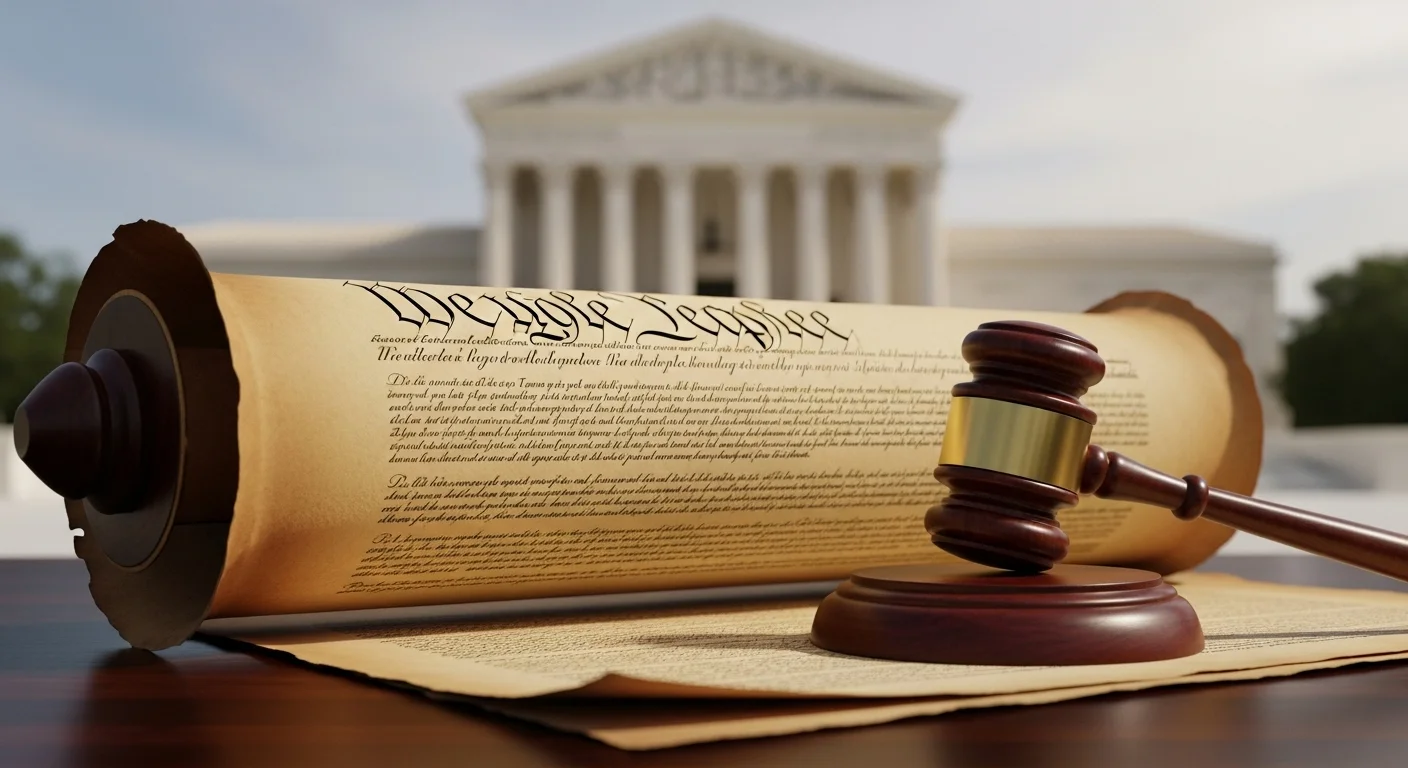
- Riddle: What is the term for when Congress overrides a presidential veto?
Hint: It requires a supermajority vote.
Answer: Two-thirds majority vote
- Riddle: What is gerrymandering?
Hint: It’s about drawing electoral districts unfairly.
Answer: Redistricting to favor one party
- Riddle: I am the highest court in the U.S. What am I?
Hint: It has nine justices.
Answer: Supreme Court
- Riddle: What is the term for a government controlled by a few?
Hint: It’s not quite a dictatorship.
Answer: Oligarchy
- Riddle: I am the amendment that abolished slavery. What am I?
Hint: It was ratified after the Civil War.
Answer: Thirteenth Amendment
Political Slogans and Catchphrases
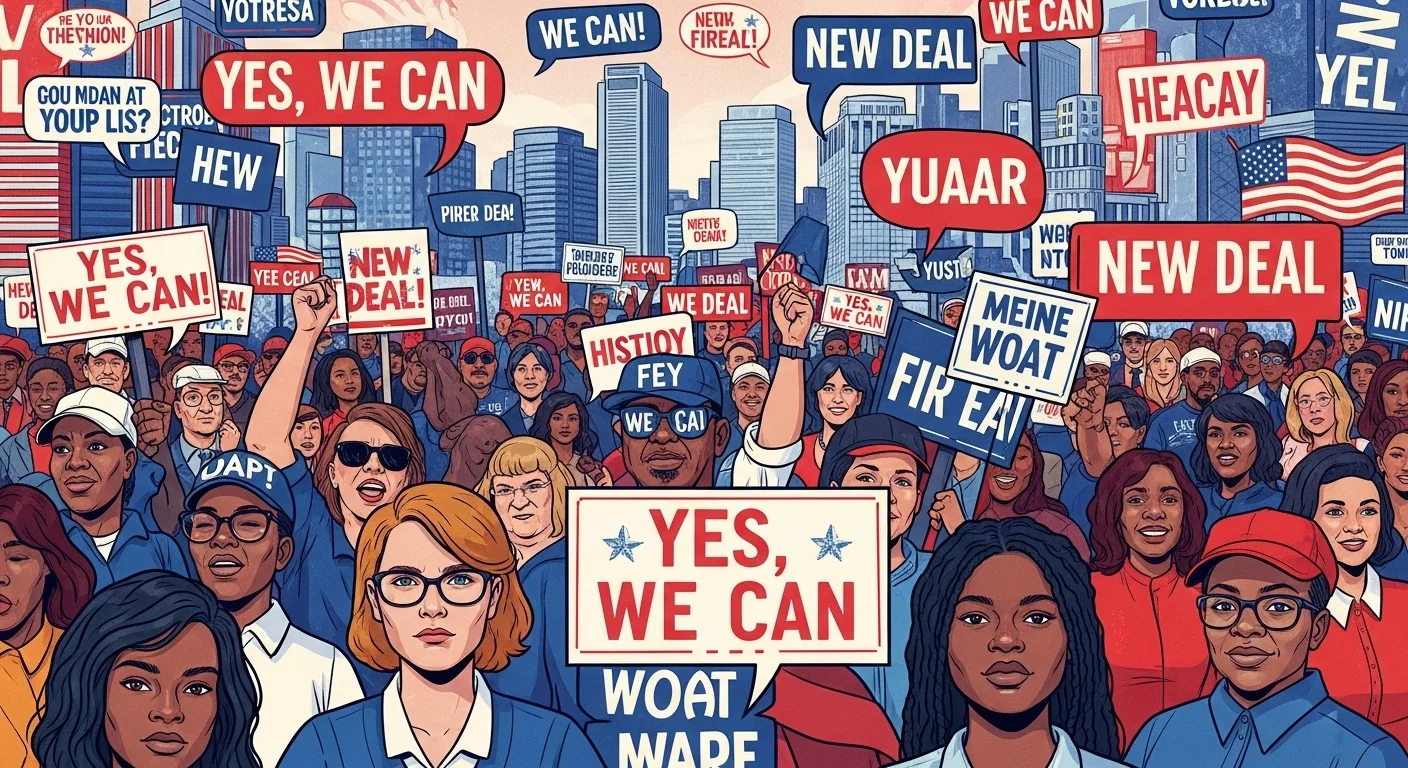
- Riddle: Which slogan means “Yes, we can” in Spanish?
Hint: It was used by various movements, including Obama’s campaign.
Answer: Sí, se puede
- Riddle: What was the slogan of the French Revolution?
Hint: It’s three words that represent ideals of freedom.
Answer: Liberty, Equality, Fraternity
- Riddle: Which slogan was “Change we can believe in”?
Hint: It was used by a U.S. president in 2008.
Answer: Barack Obama
- Riddle: What was Margaret Thatcher’s nickname?
Hint: It reflected her strong leadership style.
Answer: The Iron Lady
- Riddle: Which slogan promised “A New Deal”?
Hint: It was during the Great Depression.
Answer: Franklin D. Roosevelt
Famous Political Quotes
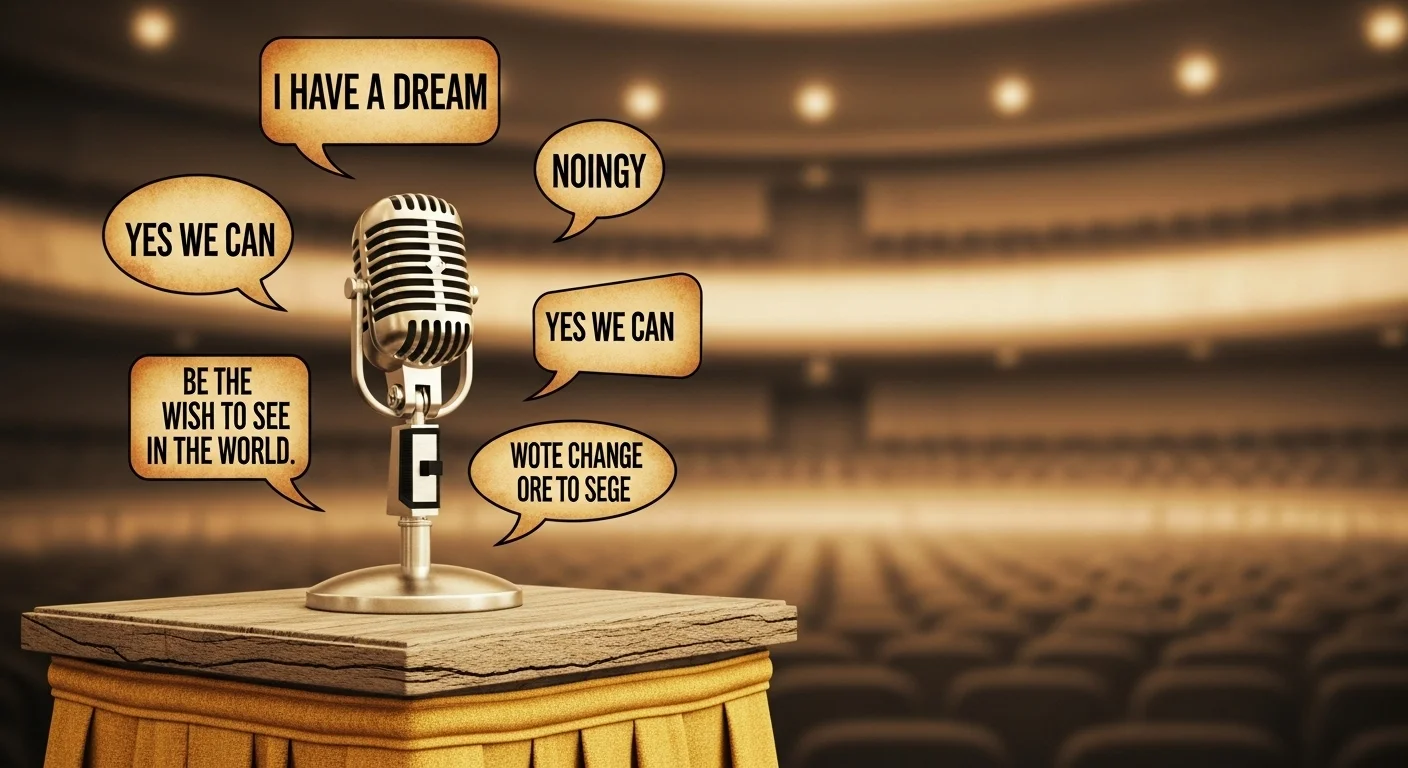
- Riddle: Who said, “I have a dream”?
Hint: It’s from a famous speech about racial equality.
Answer: Martin Luther King Jr.
- Riddle: Which leader said, “Ask not what your country can do for you”?
Hint: It’s from an inaugural address.
Answer: John F. Kennedy
- Riddle: Who said, “Give me liberty or give me death”?
Hint: It’s from the American Revolution.
Answer: Patrick Henry
- Riddle: Who said, “The only thing we have to fear is fear itself”?
Hint: It was during the Great Depression.
Answer: Franklin D. Roosevelt
- Riddle: Who said, “We shall overcome”?
Hint: It’s tied to the civil rights movement.
Answer: Martin Luther King Jr.
International Organizations
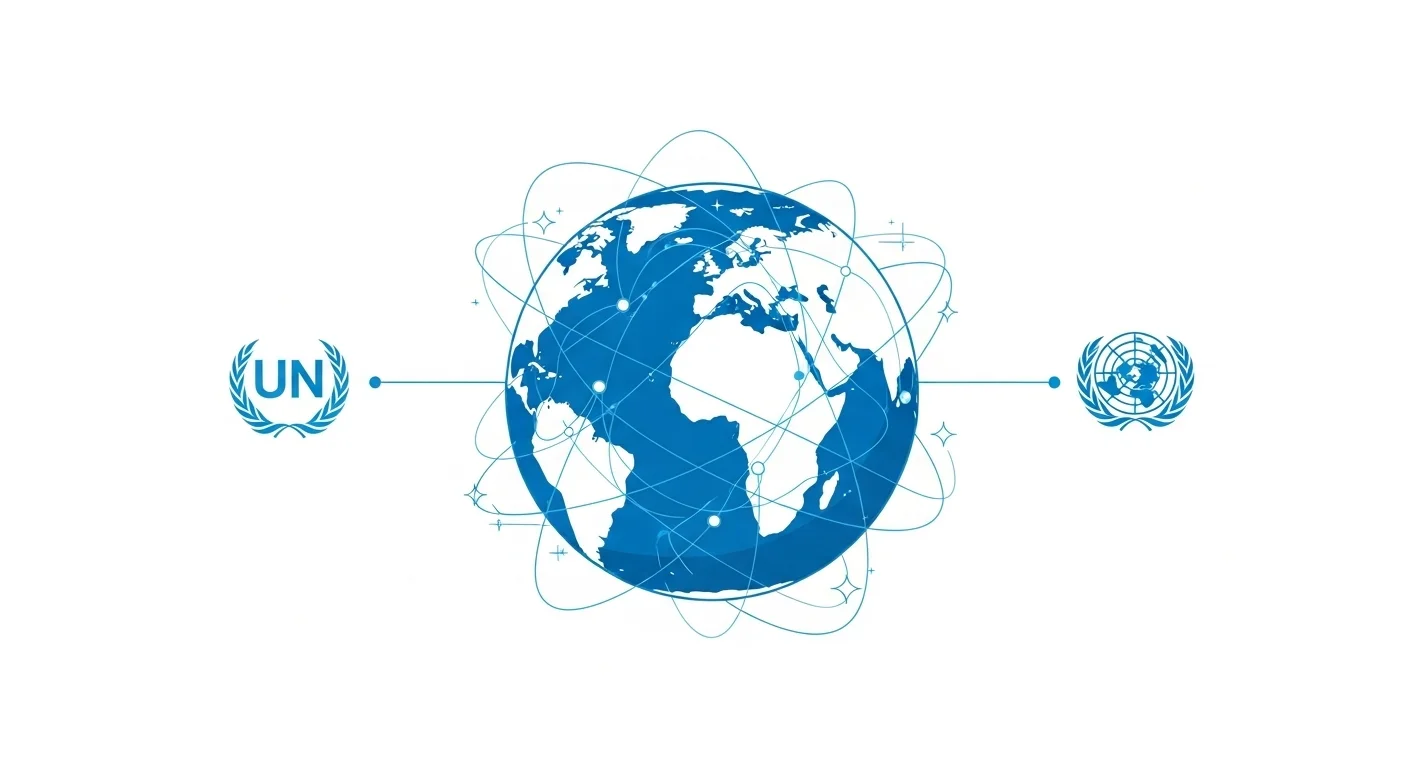
- Riddle: Which organization has 193 member states and is headquartered in New York?
Hint: It promotes peace and security worldwide.
Answer: United Nations
- Riddle: What is NATO’s primary purpose?
Hint: It’s about collective defense among member countries.
Answer: Collective defense
- Riddle: Which organization focuses on lending money to countries in need?
Hint: It’s part of the Bretton Woods system.
Answer: International Monetary Fund (IMF)
- Riddle: Which organization regulates international trade?
Hint: It replaced GATT in 1995.
Answer: World Trade Organization (WTO)
- Riddle: Which organization promotes health worldwide?
Hint: It’s known for its work on pandemics.
Answer: World Health Organization (WHO)
Political Systems Around the World
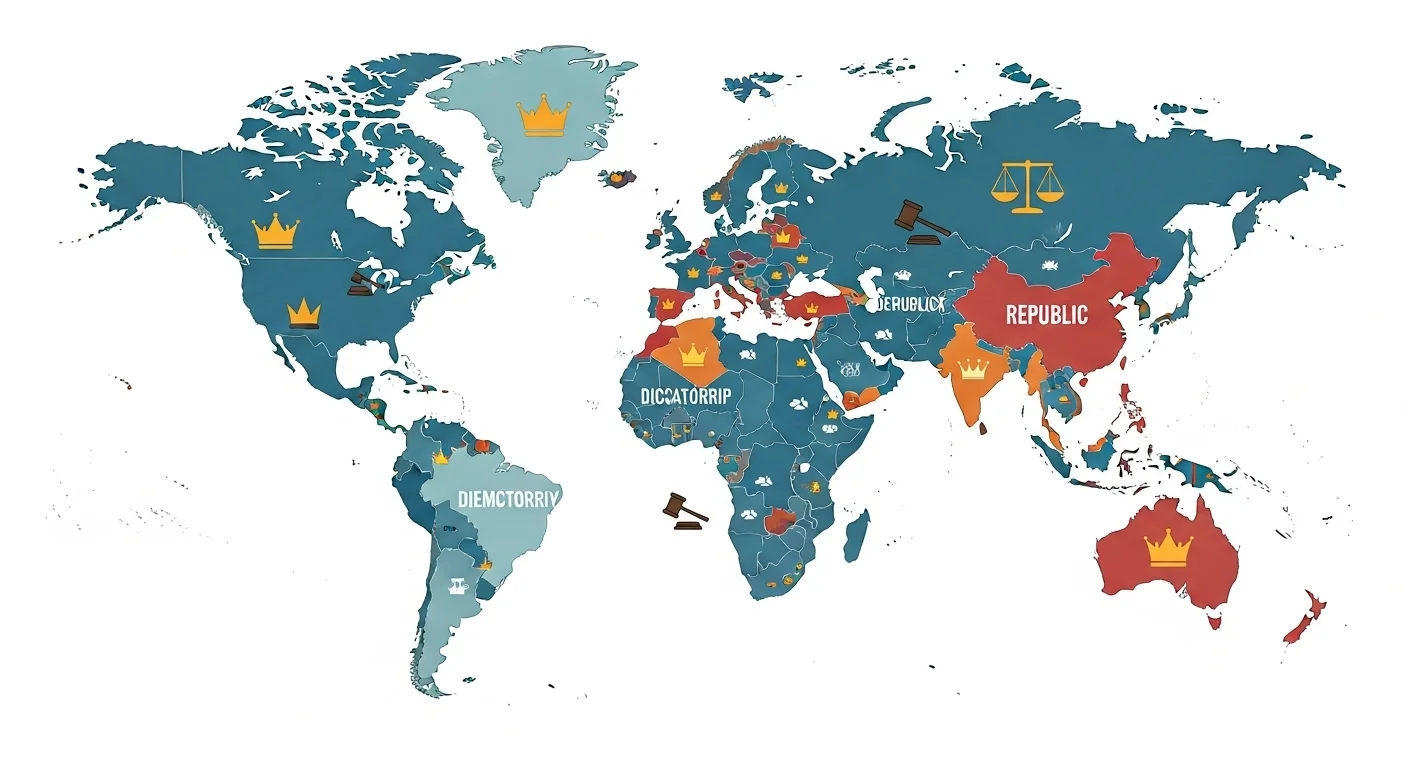
- Riddle: In which system does the military rule the country?
Hint: The army controls the government.
Answer: Military dictatorship
- Riddle: What is a theocracy?
Hint: Laws are based on religious principles.
Answer: Rule by religious leaders
- Riddle: What is a parliamentary system?
Hint: The prime minister is chosen by the legislature.
Answer: A system where the legislature selects the executive
- Riddle: Which country has a constitutional monarchy with a ceremonial monarch?
Hint: Parliament holds real power there.
Answer: United Kingdom
- Riddle: Which system ensures proportional representation?
Hint: Seats are allocated based on vote share.
Answer: Proportional representation
Election Campaign Strategies
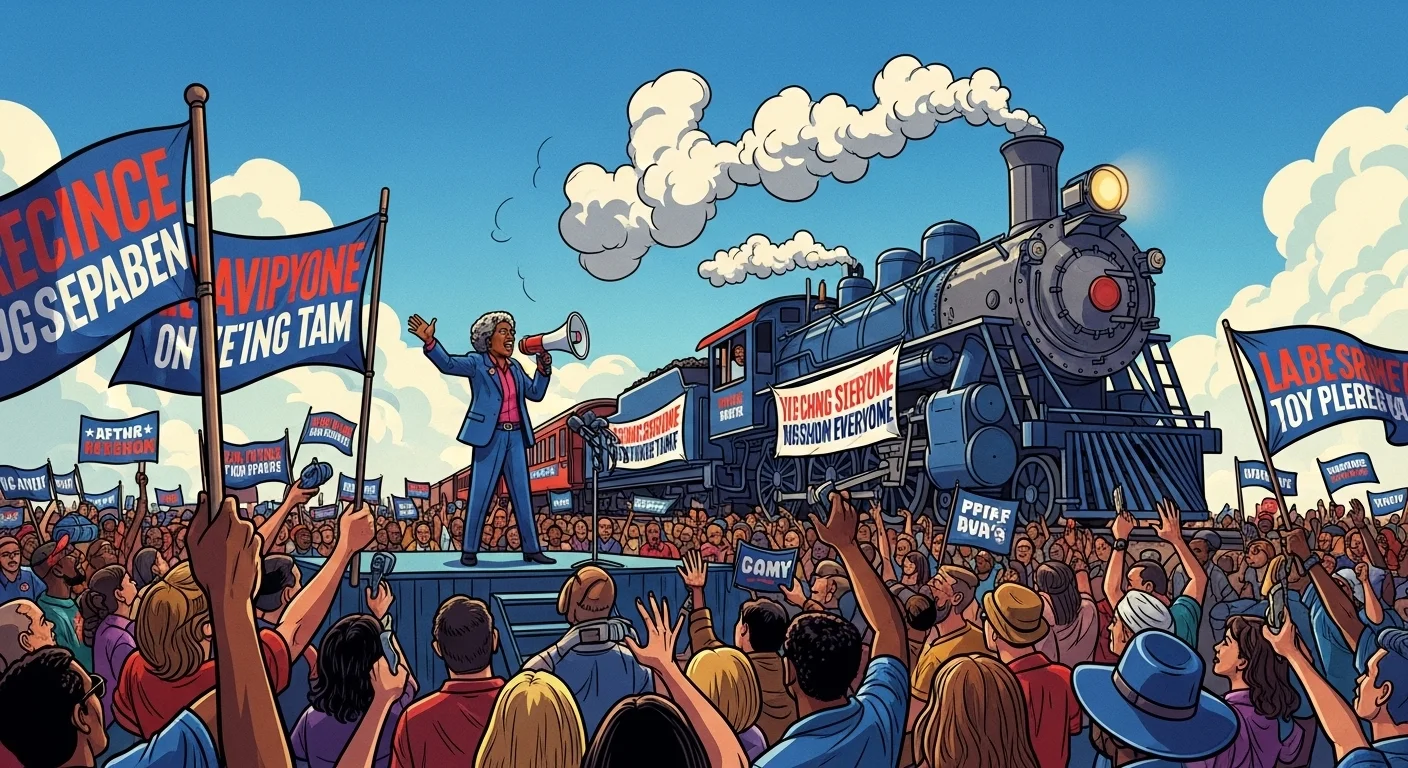
- Riddle: What is the term for visiting many states quickly during a campaign?
Hint: It’s like a whirlwind tour.
Answer: Whistle-stop tour
- Riddle: What strategy involves focusing on key swing states?
Hint: It’s about targeting voters who can be persuaded.
Answer: Battleground state strategy
- Riddle: What is negative campaigning?
Hint: It’s when candidates attack their opponents.
Answer: Attacking opponents’ weaknesses
- Riddle: What is a super PAC?
Hint: It’s a type of political action committee with fewer restrictions.
Answer: Political Action Committee with unlimited contributions
- Riddle: What is grassroots campaigning?
Hint: It relies on local volunteers and community support.
Answer: Mobilizing local supporters
Additional Riddles to Reach 125+
To ensure we exceed 125 riddles, here are more to spark your curiosity:
- Riddle: Which president was known for his “New Frontier” policies?
Hint: He inspired a generation with bold visions.
Answer: John F. Kennedy
- Riddle: Why don’t politicians play poker in the jungle?
Hint: There are too many cheaters around.
Answer: Too many cheetahs
- Riddle: What is the Electoral College?
Hint: It determines the U.S. president.
Answer: A body of electors who choose the president
- Riddle: Which leader was known for “Glasnost” and “Perestroika”?
Hint: He opened up the Soviet Union.
Answer: Mikhail Gorbachev
- Riddle: What is a caucus?
Hint: It’s a meeting to select candidates.
Answer: A party meeting to choose candidates
- Riddle: Which slogan was “I Like Ike”?
Hint: It was used in the 1952 U.S. election.
Answer: Dwight D. Eisenhower
- Riddle: What is a primary election?
Hint: It’s where parties choose their candidates.
Answer: An election to select party nominees
- Riddle: Which organization promotes European unity?
Hint: It allows free movement and trade among members.
Answer: European Union
- Riddle: What do you call a politician who’s always changing their stance?
Hint: It’s like they’re dancing.
Answer: A flip-flopper
- Riddle: Which policy protects endangered species?
Hint: It’s a U.S. law from 1973.
Answer: Endangered Species Act
- Riddle: Who was the first secretary-general of the United Nations?
Hint: He was from Norway.
Answer: Trygve Lie
- Riddle: What is a coalition government?
Hint: It’s when multiple parties share power.
Answer: A government formed by multiple parties
- Riddle: Which president was a Rhodes Scholar?
Hint: He studied at Oxford before entering politics.
Answer: Bill Clinton
- Riddle: Why did the candidate bring a ladder to the debate?
Hint: They wanted to elevate their argument.
Answer: To raise their points
- Riddle: What is a superdelegate?
Hint: They have more influence in party conventions.
Answer: A party leader with a free vote at conventions
- Riddle: Which leader is known for the “Great Leap Forward”?
Hint: It was a controversial policy in China.
Answer: Mao Zedong
- Riddle: What is a tariff?
Hint: It’s a tax on imported goods.
Answer: A tax on imports
- Riddle: Which party used “Contract with America”?
Hint: It was a key part of the 1994 midterm elections.
Answer: Republican Party
- Riddle: What is a recall election?
Hint: It’s when voters can remove an official.
Answer: An election to remove an elected official
- Riddle: Which leader said, “Mr. Gorbachev, tear down this wall!”?
Hint: It was about the Berlin Wall.
Answer: Ronald Reagan
- Riddle: What is a super PAC?
Hint: It’s a type of political action committee with fewer restrictions.
Answer: Political Action Committee with unlimited contributions
- Riddle: Why did the politician become a gardener?
Hint: They wanted to grow their support base.
Answer: To cultivate their base
- Riddle: What is a filibuster?
Hint: It’s used to delay or block legislation in the Senate.
Answer: A long speech to prevent voting on a bill
- Riddle: Which country uses a federal system like the U.S.?
Hint: It’s a large country in Oceania.
Answer: Australia
- Riddle: What is a superdelegate?
Hint: They have more influence in party conventions.
Answer: A party leader with a free vote at conventions
- Riddle: Which president had a pet mockingbird named Dick?
Hint: He was an inventor and architect.
Answer: Thomas Jefferson
- Riddle: What is a runoff election?
Hint: It’s held when no candidate gets a majority.
Answer: An election to determine a winner between top candidates
- Riddle: Which leader was the first president of South Africa after apartheid?
Hint: He won the Nobel Peace Prize.
Answer: Nelson Mandela
Conclusion
Such riddles mix a bit of humor with knowledge about politics. The book contains presidential facts together with humorous comments about politicians to both entertain and inform. You can utilize these for encouraging discussions with your team, in the classroom or simply to have fun and they’re sure to get everyone talking. You could share the riddles with others, lets them try to solve the most difficult ones and perhaps make up your own! Talking about politics can divide people, so a good riddle gives everyone a reason to smile together.
Frequently Asked Questions (FAQs)
What are political riddles?
Political riddles are puzzles that require knowledge of politics, history, or current events to solve, often with a humorous or clever twist.
Are these riddles suitable for all ages?
Most are family-friendly, but some contain satire that may resonate more with adults familiar with political nuances.
Can I use these riddles for educational purposes?
Yes! They’re ideal for classrooms, debate clubs, or social studies lessons to make learning about politics fun and interactive.
Where can I find more political riddles?
Check out political humor books, satire websites, or create your own based on current events. This collection is a great starting point!
What can run but never talks?
A campaign, which “runs” during elections but doesn’t speak.
What are some political phrases?
Phrases like “checks and balances,” “bipartisanship,” or “filibuster” often appear in political riddles, as seen in this collection.
